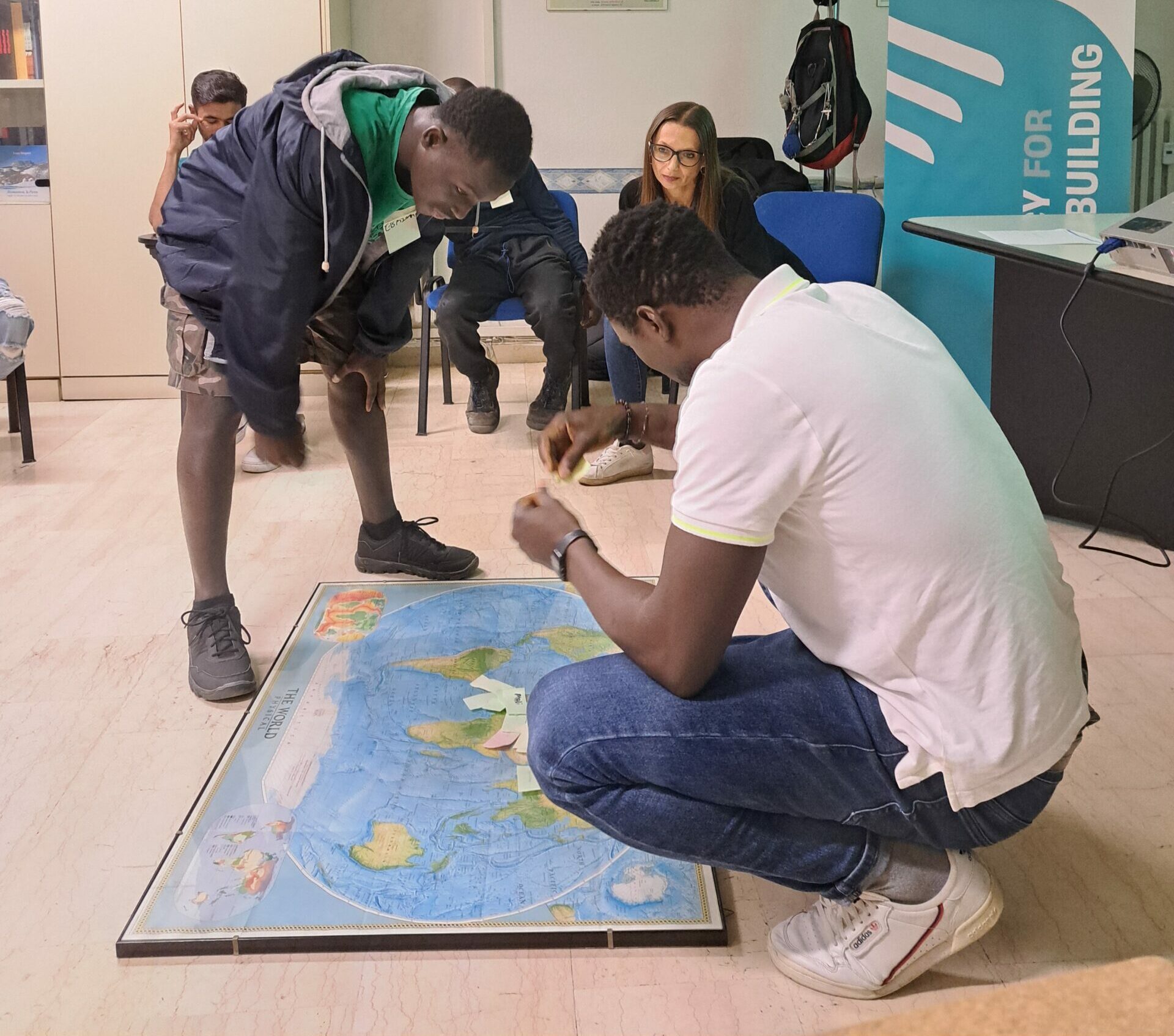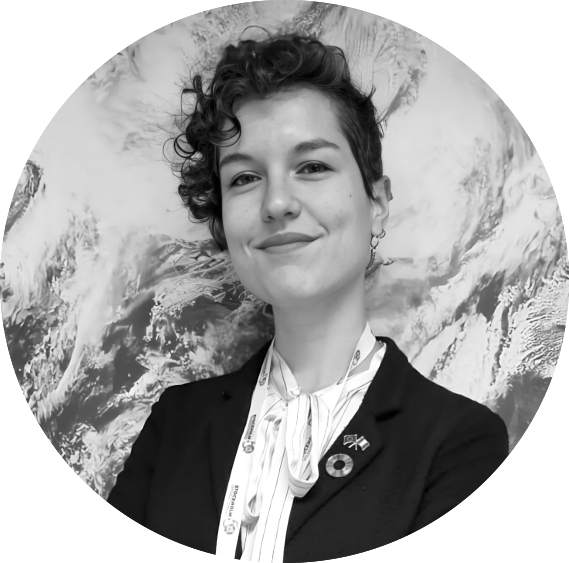
Back to our home! Why our societies must make peace with migrants
Back to our home!
Why our societies must make peace with migrants
The “wars” of those at peace
When we think of peace, our thoughts often turn to “other” wars, more or less distant. We know that building peace means actively working to prevent or mitigate violent conflict in all its forms, but when we refer to violence, we often think of physical harm or, at most, verbal abuse. However our societies are pervaded by forms of cultural and structural violence. The first relates to those attitudes and beliefs that somehow justify or normalize violence whereas the latter is inherent in a social system that, more or less blatantly, sustains inequalities, giving some groups more power or resources than others. Therefore, working on peace in countries that are not in active war means committing to establish a social order in which everyone can realise their dignity and rights in freedom and equality.
In this landscape, very often migrant and receiving communities live in two parallel worlds that only sometimes brush against each other, almost never touch. It is thus hard to imagine that any process of mutual acquaintance, trust-building and ultimately integration can be established. Moreover, migrants often experience both cultural and structural violence in their new societies. Culturally, they may face discrimination, racism, or exclusion, as they are depicted as outsiders or “others”, if not a theaten. Structurally, migrants may not only encounter barriers to accessing basic services, but also systematic marginalization from decision-making processes and civic participation. These combined forms of violence prevent migrants from fully participating in society and achieving their potential.
According to globally recognised peacebuilding frameworks, ensuring the participation of all voices is key to establishing a resilient and equal society, capable of ensuring a sustainable peace. Thus committing to integration is a peace project per se, perhaps one of the most important but also complex that our communities face. And it must start here, in our cities. It is therefore crucial to devise concrete actions that foster the valorisation of diversity and greater social cohesion between migrant and host communities.
The “wars” of migrants
Migration is a phenomenon that characterises our time and continues to radically transform our society. It is a global movement determined by multiple factors that affects not only the demography of host countries, but also their social structures, cultural landscapes, community dynamics and economic systems. Yet, while violent conflicts and human rights abuses, severe economic deprivation and the consequences of climate change drive hundreds of thousands of people out of their home countries every year, for decades we have witnessed an increasing media and political hype and polarised discourse against migrants who are often portrayed as a threat to host society. Prejudices rooted in racism, religion, or cultural differences are frequently used to justify opposition to migrants, who are blamed for threatening the social fabric of host societies.
Talking about migration is difficult, it inflames tempers and polarises perspectives. Discrimination, cultural prejudices, structural exclusion, hate speech and hate crimes prevent our society from being truly cohesive, fair and peaceful. However, in Europe, lack of integration, disrupted social cohesion, and security concerns continue to be at the forefront of the debate surrounding migration. European countries continue to grapple with policies surrounding border control, asylum processes, and the fair treatment of migrants, which have sparked ongoing debates on both national and European Union levels. Discrimination, misinformation and hate speech against migrants have become prominent challenges in Europe, exacerbated by rising populist rhetoric and exclusionary policies. Migrants, particularly those of non-European origin, face increasing racial violence and verbal attacks. Anti-immigrant and racist sentiments are widespread and hate speech is often perpetrated by public figures, including politicians, without significant consequences. This toxic discourse fuels division and undermines social cohesion, while vulnerable migrant groups, such as Muslim women or people of African descent, are targeted by hate-driven violence and discrimination.
Integration is building peace
Strengthening social cohesion is a crucial peacebuilding priority in various ways: it helps address intercommunal tensions, marginalization, and social exclusion, playing a central role in resolving ongoing conflicts, preventing the emergence of new ones and fostering sustainable peace. By addressing the core grievances related to the marginalization and lack of participation of migrants, peacebuilders can help ensure that migrant and host communities coexist peacefully. Integration should thus be seen as a participatory peacebuilding effort that actively includes migrants, ensuring they have a voice in shaping the social, political, and cultural fabric of their new communities.
In order to adopt a participatory approach and to leverage on migrants’ potential to contribute to a more cohesive, equitable and thus peaceful society, it is beneficial to design safe spaces where migrants, especially youth, can strengthen their skills, giving them tools and opportunities to mediate between different communities and identities, to prevent and mitigate polarisation, and to turn conflict into an opportunity for encounter and mutual discovery. For this reason, the Agency for Peacebuilding (AP) has chosen to intervene in the community fabric of its own city, Bologna.
As highlighted in the UNHCR Charter for the Integration of Refugees, to which the city of Bologna adhered in February 2024, the inclusion of migrants in Italian society and its democratic processes is an enriching factor, capable of fostering the harmonious development of a cohesive and peaceful society. Yet there have still been too few attempts to engage migrant voices in widespread work on social cohesion and even less to strengthen the needed competences. Emilia Romagna is among the first regions for the incidence of foreign citizens and, in Bologna, they make up almost 13% of the citizens, the majority of them being young people. However, the opportunities for encounters and exchanges between them and the citizens of Bologna, especially the older generation, are very few.
For this reason, in 2024, the Agency for Peacebuilding designed a project tackling this issue. The project “MigrAZIONI di Pace” is financed by the Emilia Romagna Region in partnership with local civil society associations such as IBO, Yérédemeton and Universo and experts in the field of psychology, youth participation, peacebuilding and cultural mediation. MigrAZIONI di Pace engages a group of youth from a migrant background and gives them the opportunity to act as agents of mediation and peace between their communities and the host one, contributing to the creation or strengthening of active and positive social relations. An intervention, therefore, that emphasises the empowerment and participation of migrants, including through the involvement of their associations, and aims to strengthen the awareness and competences needed to foster encounters, exchanges and cooperation between migrants and between migrants and host communities.
The participants have been involved in a laboratory that, through informal education activities and facilitated dialogue, strengthened their competencies in the field of conflict mediation, intercultural dialogue and psychosocial support. Afterwards, based on the needs perceived by engaged youth, AP and its partners proposed a number of activities. Among them, the visit to Monte Sole Peace School stands out: participants and staff from the involved organisations attended a full day of peace education in the hills of Monte Sole, close to Bologna, a place of memory of the heinous Montesole massacre perpetrated by the Nazi-Fascists during World War II. Thanks to the trust built throughout the project, the group engaged in an emotional and intimate dialogue seeking to bridge the tragedies and sorrow of both the past and present, while also highlighting the personal and collective commitment to ensuring that such violence is never repeated against anyone.
What made this project special was that all participants, whether migrant youth or staff members from organizations, engaged on equal terms, opening up and fully participating. MigrAZIONI di Pace created a safe space where individuals could share the pain of the past and the struggles of the present, a place of patience for those still learning the Italian language, and an environment of non-judgment and active listening. The project showed that it is time to structurally invest in the integration of migrants and in their participation in the civic life of host communities. Initiatives such as AP’s one show the potential of empowering migrants as agents of dialogue and integration. By fostering mutual understanding and participation, we can break down barriers of prejudice and fear, transforming diversity into a source of strength. Integration is not just a challenge but a vital peace project that begins locally, creating a future where everyone, regardless of origin, thrives with dignity and purpose. And this journey begins in our cities, with the collective will to see migration not as a burden but as a cornerstone of our shared humanity.






























